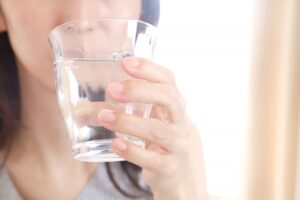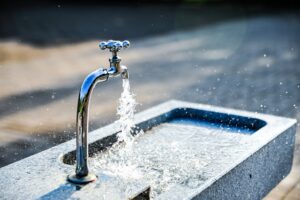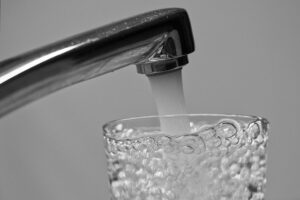Why Japanese Tap Water is Safe to Drink
Strict Water Quality Standards and Laws
Japanese tap water is among the safest in the world, thanks to exceptionally rigorous water quality standards. The Ministry of Health, Labour and Welfare enforces over 50 criteria for water quality, covering bacteria, viruses, harmful substances, taste, and odor. Only water that meets these strict criteria is supplied to homes.
Additionally, local governments ensure thorough management of water quality under the Water Supply Act. Daily inspections are mandatory, creating a robust system to maintain safety and reliability.
Advanced Water Purification Systems
Japan’s water treatment plants use highly advanced purification processes. The standard procedures include sedimentation, filtration, and chlorine disinfection, but some facilities go further with activated carbon treatment, ozone processing, and membrane filtration. These advanced technologies not only remove minute impurities and harmful substances but also enhance the water’s taste and odor.
The meticulous nature of these processes has earned global recognition. For instance, Japan’s standards for harmful substances like trihalomethanes and lead are stricter than those recommended by the World Health Organization (WHO).

Advanced Technologies Behind Clean Water
IoT and AI for Smarter Water Management
In recent years, Japan has embraced IoT (Internet of Things) and AI (Artificial Intelligence) to enhance water management. Real-time monitoring systems collect data on water quality and quantity, enabling swift responses to anomalies. For instance, if a sensor detects irregularities, alerts are issued immediately, allowing prompt action.
AI-based predictive models can foresee how rainfall or temperature changes will affect water quality. This helps optimize treatment processes, ensuring a stable supply of high-quality water.
Durable Pipelines and Anti-Aging Measures
Aging water infrastructure is a global issue, but Japan has been systematically addressing it. Modern materials and earthquake-resistant designs have reduced the risk of pipe failures.
For example, ductile iron pipes and polyethylene pipes are used to prevent corrosion and leaks. Non-invasive methods, such as trenchless technologies, allow pipes to be replaced without large-scale digging, reducing costs and increasing efficiency.

Comparing Japan’s Water Quality with the World
Only 15 Countries Offer Safe Tap Water
Globally, only about 15 countries can claim their tap water is safe to drink without further treatment. These include Japan, Switzerland, Germany, Sweden, and New Zealand. Among these, Japan stands out as a densely populated, urbanized country with exceptionally high standards.
In many countries, tap water must be boiled or filtered before it’s safe to drink. In contrast, Japan’s advanced purification systems and meticulous management provide consistent water quality, whether in urban or rural areas.
The Appeal of Japan’s Soft Water
One reason Japanese tap water is so palatable is that it’s “soft water.” The hardness of water is determined by its calcium and magnesium content. Soft water has a smoother taste and is gentler on the stomach compared to hard water.
This characteristic is largely due to Japan’s geography. The country’s mountainous terrain causes rainwater to pass through rocks quickly, resulting in low mineral content. This unique feature enhances the drinkability of Japanese tap water.

The Future of Safe Tap Water
Sustainable Water Resource Management
To ensure safe tap water for future generations, Japan is focusing on sustainable water resource management. Challenges such as water shortages due to climate change and rising maintenance costs due to population decline are being addressed. Measures include efficient use of rainwater and improved groundwater management.
Additionally, water treatment plants are adopting renewable energy sources, and public awareness campaigns are encouraging reduced water waste. These efforts aim to create an environmentally friendly and efficient water supply system.
International Expansion of Water Services
Japanese water technology is gaining attention worldwide, particularly in regions like Asia and Africa where access to safe water is limited. By exporting its expertise, Japan is contributing to global efforts to improve water safety and quality.
Through international collaboration, Japan’s advanced water systems are helping to ensure that more people around the world can access clean and safe drinking water.
Conclusion: Preserving Reliable Tap Water for the Future
The safety of Japanese tap water stems from strict regulations, advanced technology, and meticulous management. This exceptional standard should not be taken for granted, and efforts to safeguard it must continue.
By embracing technological innovations and sustainable practices, Japan can ensure that future generations will enjoy the same level of safety and quality. Let’s strive to create a society where clean and delicious tap water remains a reliable resource for all!



